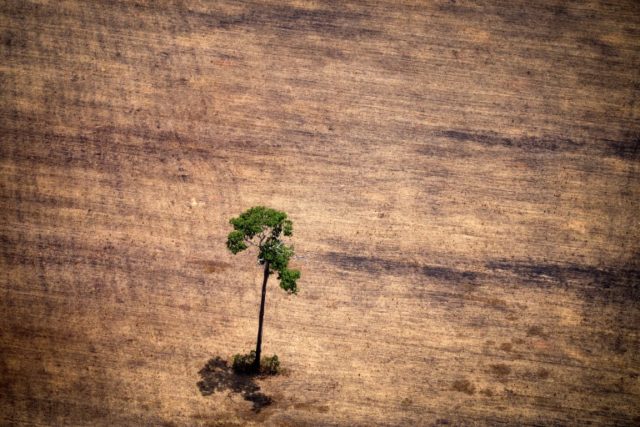Brasília (AFP) – Brazil’s agriculture minister on Tuesday defended a record number of pesticide and weedkiller approvals this year, saying the government was not “putting poison on anyone’s plate.”
The remarks by Tereza Cristina, who is close to the country’s powerful agribusiness industry, come as Brazil faces growing criticism over deforestation in the Amazon and its heavy use of toxic farming products.
Both issues could create problems for a free trade agreement between the South American Mercosur trade bloc, that includes Brazil, and the European Union.
“We can’t terrorize Brazilian consumers or external consumers from more than 162 countries that import Brazilian products,” Cristina told journalists, claiming Brazil’s reputation was being “denigrated”.
“We have different cultures, different climates (to other countries), and Brazil does not use anything that can’t be used.”
Official data shows 262 new pesticides and weedkillers were approved in the first seven months of this year — a record for that period.
But Cristina said only seven of those products were actually new. The rest were classified as generics.
The process to approve the products started before President Jair Bolsonaro took power in January, she added.
Brazilian law “does not permit the registration of a product that is more toxic or as toxic as those that exist in the market,” she said.
Bolsonaro last month slammed as “disinformation” news that Brazilian farmers were heavy users of toxic pesticides.
“Brazil is the country that least uses toxic pesticides because if we were selling poison, you wouldn’t be buying. I’m surprised by this disinformation,” Bolsonaro said.
Meanwhile around 600 agricultural products previously rated as “extremely toxic” have been moved into lower categories, G1 news site said Friday, following a review of nearly 2,000 products by a government agency.
Only 43 products remain in the highest-risk category.
A Greenpeace report published in June showed Brazil registered more than 1,200 pesticides and weedkillers in the past three years, some of which contained chemicals banned in the European Union.

COMMENTS
Please let us know if you're having issues with commenting.